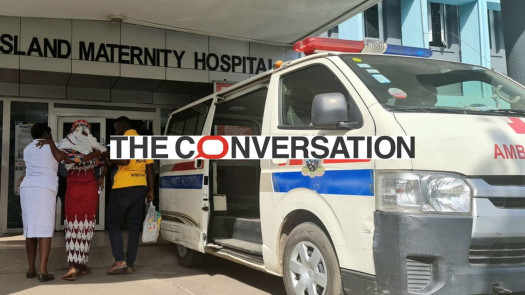Women's Health
Healthcare Systems
Pregnancy & Maternal Health
Public Health & Health Policy
Emergency Care & Crisis
Post-Doctoral Fellowships
United Kingdom
2019.08.31
Towards timely and quality access to emergency obstetric care in Sub-Saharan Africa
Nearly 300 000 women (1) lose their lives each year from pregnancy-related complications, such as haemorrhage, high blood pressure, obstructed labour, infection and complications following unsafe abortions. Almost all of these deaths occur in low- and middle-income countries. One of the main reasons for this is delayed access to Emergency Obstetric Care (EmOC).
Medical doctor, public health practitioner, and global maternal and newborn health researcher, Dr. Aduragbemi Banke-Thomas, AXA Research Fund Women Health Fellowship Grantee, who grew up in Nigeria and witnessed first-hand the myriad of challenges that pregnant women in his country face each day, has always been passionate about addressing the problem.
The aim of Dr. Banke-Thomas’ research, hosted at the LSE Health London, was to identify areas in the state of Lagos in Nigeria that posed particular challenge to pregnant women in terms of geographical accessibility to health facilities able to provide EmOC.
Before his project, the state-of-the art in assessing accessibly to critical maternal health services was based on models that did not reflect reality. For example, many previous efforts estimated straight-line distances between health facilities and the place where the women in need of EmOC lived.
Dr. Banke-Thomas set out to determine the real-life travel conditions that pregnant women experience and find out whether global navigation maps such as Google Maps could be used to optimise accessibility to EmOC for pregnant woman living in Africa’s largest megacity, Lagos.
Among other important results, he found that in reality, travel times can be up to four times longer than traditional computer models predict. This disparity comes from many factors that the models do not consider, like expansion of urban slums, high traffic congestion, the poor state of roads and rain.
The findings from the research highlighted areas in Lagos that are particularly disadvantaged for pregnant women when it comes to accessing EmOC. Indeed, the results have already been used by the Lagos State Government to put forward a case to improve the problem and determine a cost-effective location for a new public hospital.
The project has clearly shown that the so-called “urban advantage” in which urban dwellers are deemed to have over rural dwellers is blurring with accessibility issues and even higher odds of poor pregnancy outcomes being reported in some suburbs compared to rural areas. An outreach animation video to show this observed phenomenon was premiered at the International Maternal and Newborn health conference in Cape Town, South Africa in May 2023.
What is more, the project has led to a collaboration with Google to develop an application for EmOC geographical accessibility in Nigeria with plans to scale up to other African cities (2).
Dr. Banke-Thomas now plans to extend his work to other cities beyond Africa and design interventions to address inequities in access to EmOC in these areas of the world.
(1) https://www.who.int/news-room/fact-sheets/detail/maternal-mortality
(2) https://emergencyobstetriccare.webapps.google.com/overview
Women's Health Fellowhip: Outcome Summary
The following article summarizes all outcomes from 8 postdoctoral research projects from the Women's Helath Fellowship.
Read More
Aduragbemi
BANKE-THOMAS
Institution
London School of Economics and Political Science
Country
United Kingdom
Nationality
Nigerian
Related articles
Healthcare Systems
Public Health & Health Policy
Mécénat des Mutuelle
France
Medicine and Humanities Program
Today, medical humanities departments are flourishing in universities around the world. An interdisciplinary reflection is underway, building a new knowledge... Read more

Emmanuel
DIDIER
Ecole Normale Supérieure
Pollution
Healthcare Systems
Toxic Pollutants & Hazardous Substances
Public Health & Health Policy
Air Quality
Water Quality
AXA Award
Switzerland
Grand Jet d'Or Award on Adverse Effects of Pollution on Humans
The World Health Organization estimates that exposure to air pollution is responsible for about 7 million premature deaths worldwide each... Read more
Geneva Health Forum
(GHF)




.thumbnail.jpg)